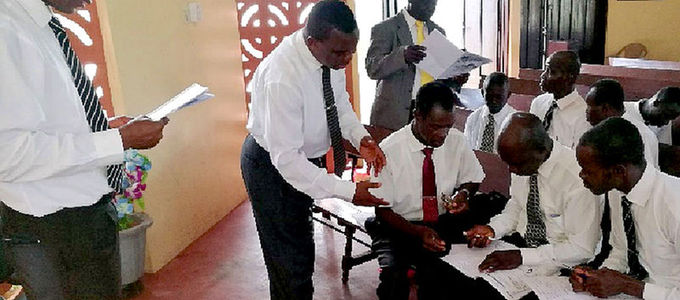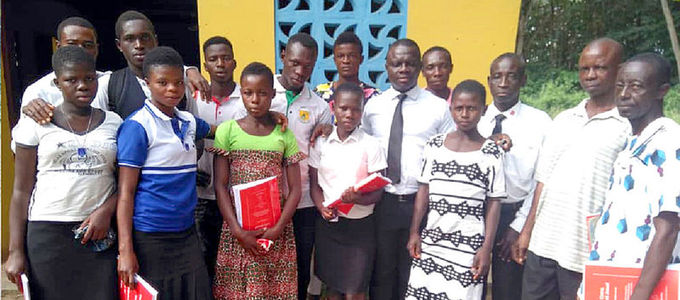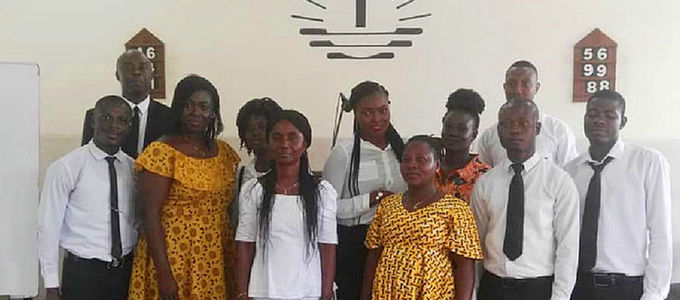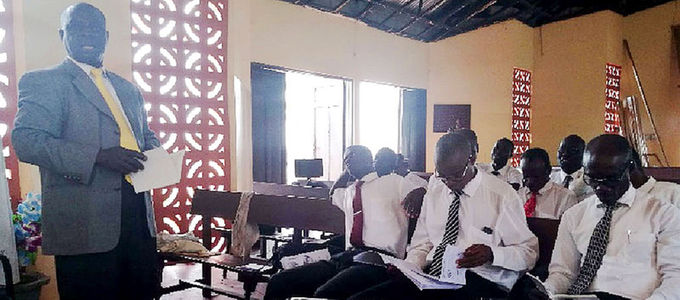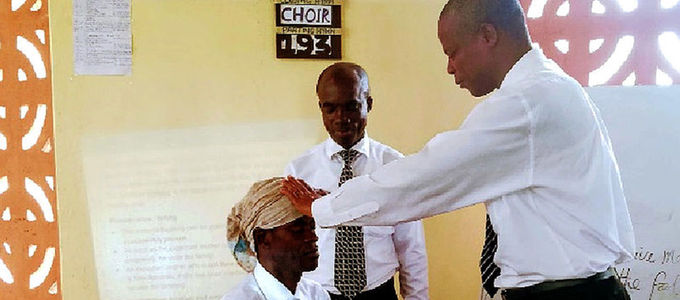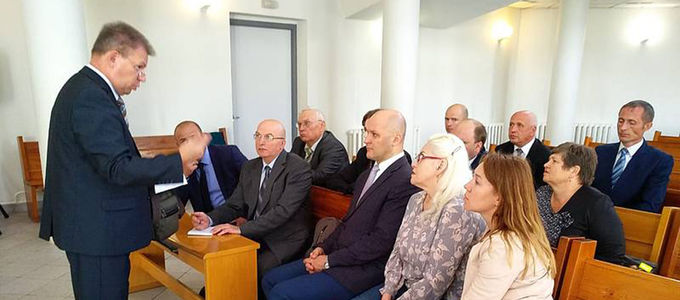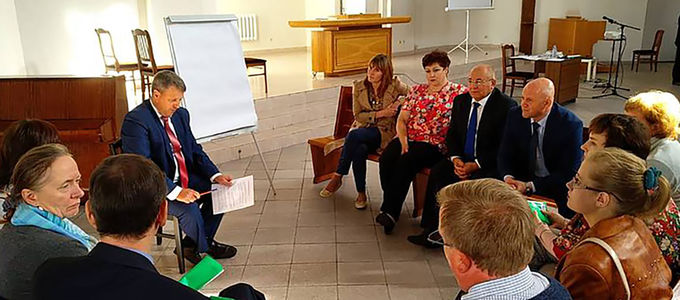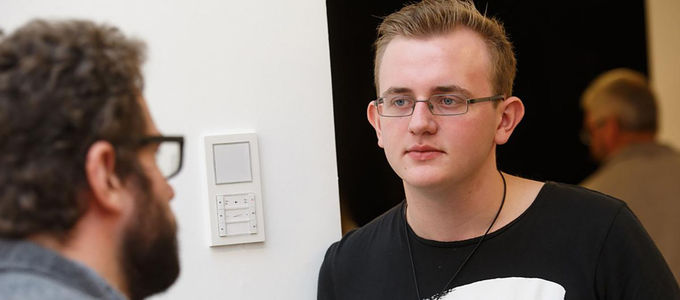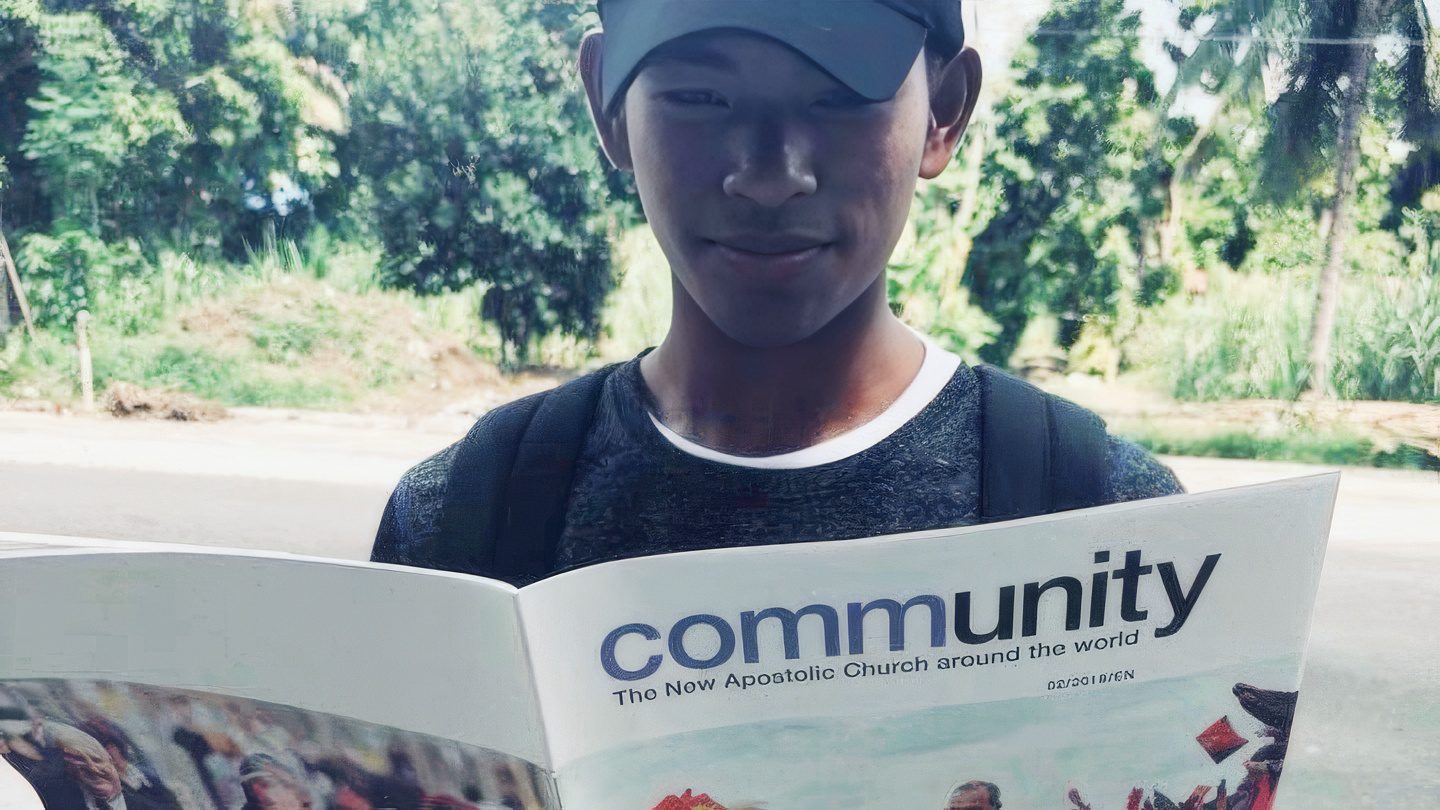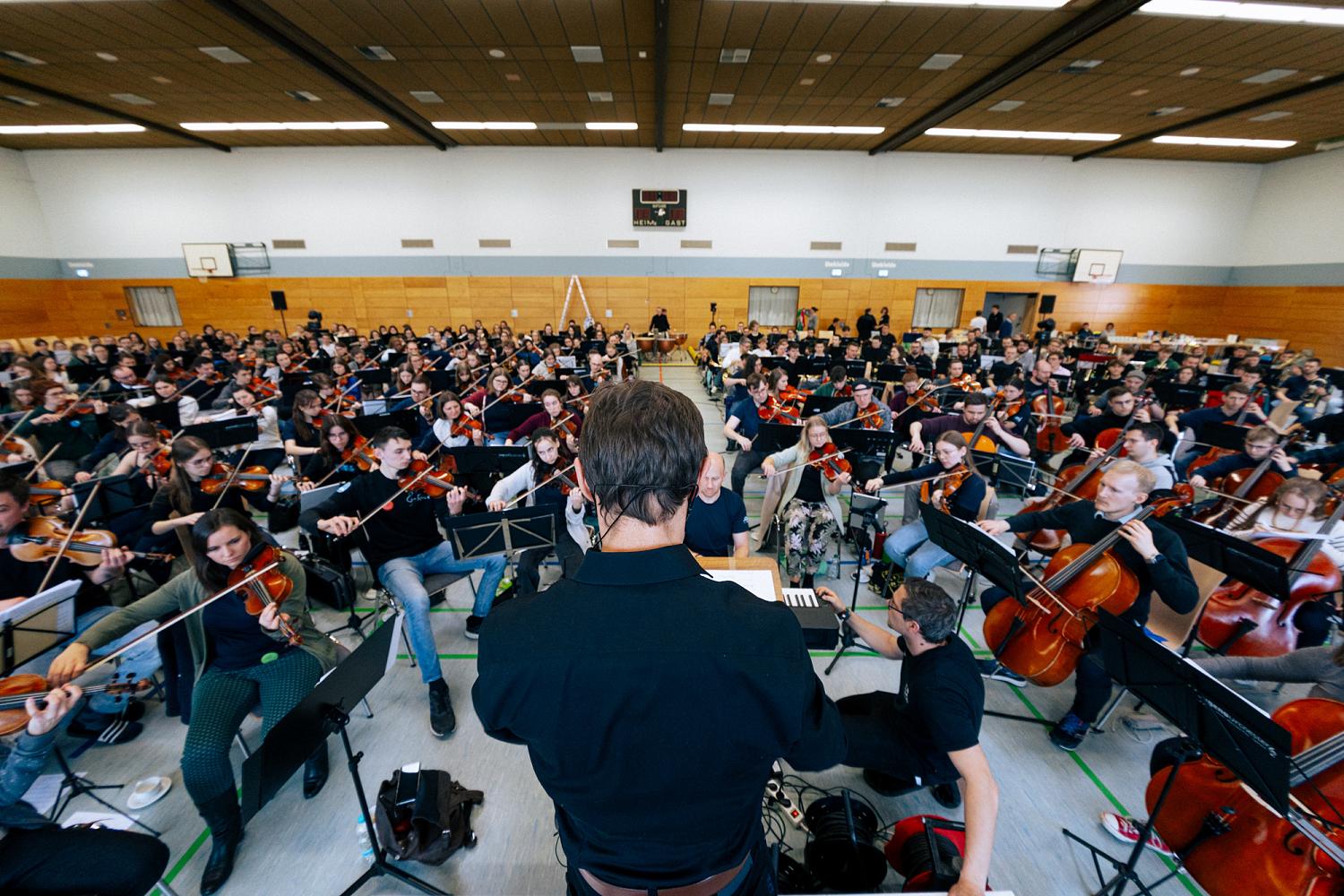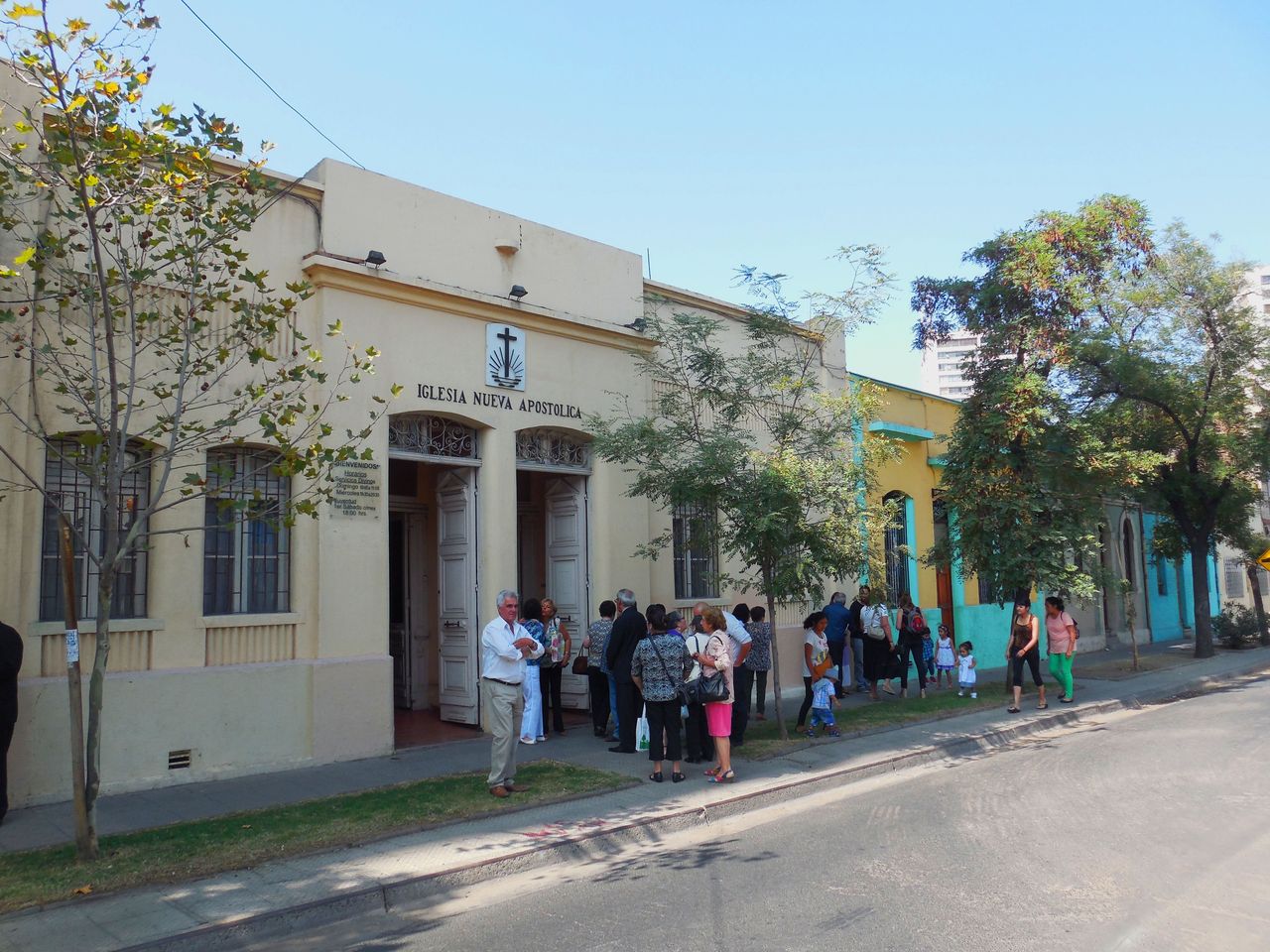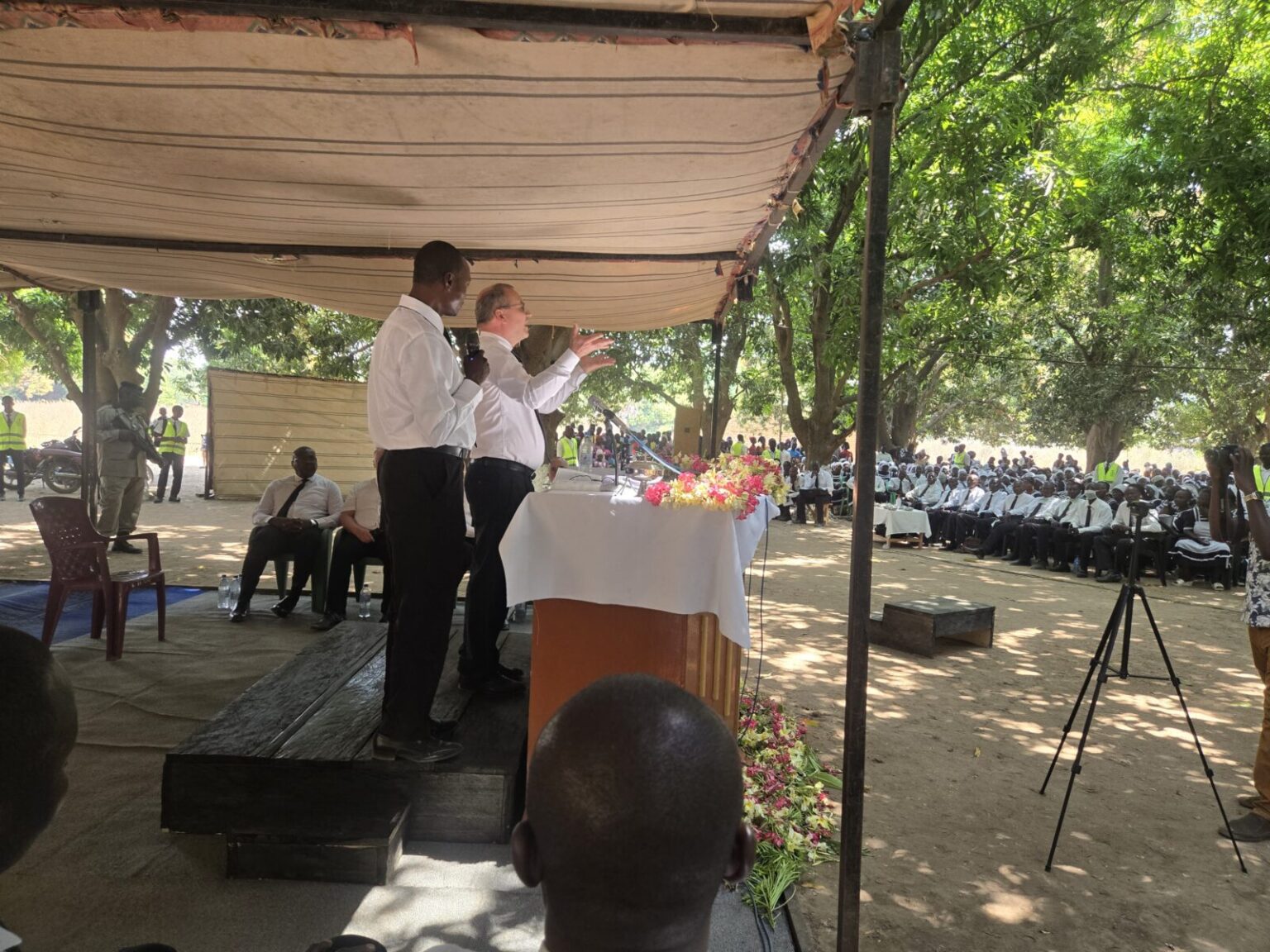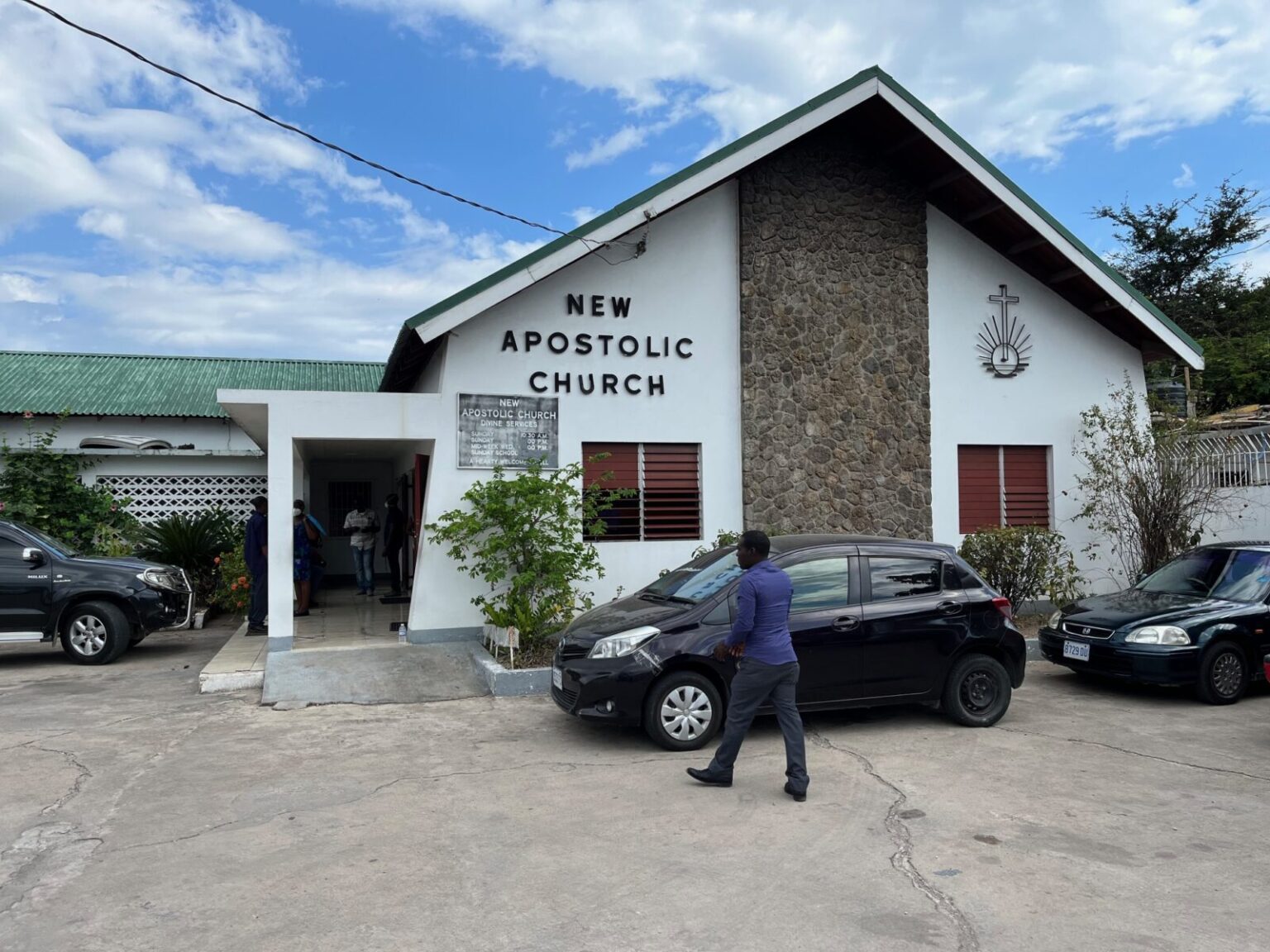
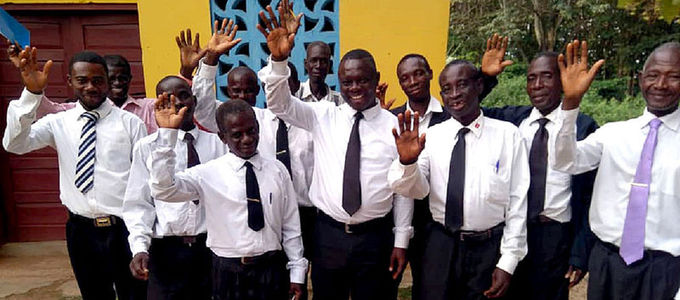
Learning together and from one another: we make better progress when we work together, even when this involves acquiring new knowledge or abilities. This is an experience that is common to musicians, teachers, South Americans, Central Europeans, or West Africans.
Teachers teach teachers how to teach
“Train the trainers” is the principle in current use in West Africa. The training pyramid functions on several levels: it begins in a “Seminar Supervision Team” that develops materials and plans how to introduce them—which is approved by the “National Head of Seminars” and an “Area Head of Seminars”, who are responsible for financing and organisation—and ends with the “Senior Tutors” and “Local Tutors”, who in turn, train the ministers and teaching staff.
An example of just how this looks in practice was demonstrated in August and September in Ghana, where Shepherd Karel de Heer instructed sixteen confirmation teachers from ten congregations in the Apostle district of Aoora. In the Apostle district of Kumasi, Shepherd Owusu Agyabeng led twelve ministers through the doctrine and history of the New Apostolic Church. He also instructed an equal number of Sunday School teachers in the foundations of teaching. And in the Apostle district of Cape Coast, District Evangelist Birikorang Darko trained a number of tutors on the topic of “Responsibilities and tasks of ministers”.
Special forms of divine service
In mid-September, a seminar for congregational rectors in St. Petersburg, Russia focused on the organisation and conducting of devotionals and special forms of divine service. In addition to the ministers from Russia, Kazakhstan, Belarus, Tajikistan, and Uzbekistan, other brothers and sisters who offer prayer services in their congregations had also been invited. In addition, a lawyer provided information on amendments and expansions to the law on “Freedom of Conscience and Religious Associations”. The morning, with its focus on theoretical instruction, was followed by an afternoon of more practical exercises.
Tracking the footprint
The question of how to treat the creation responsibly was the focal point of a presentation in Stuttgart, Southern Germany. As part of a series of collectively organised events, three congregations had invited a high-calibre speaker: Ernst Ulrich von Weizsäcker, co-president of the Club of Rome, gave a presentation on the “Footprint of a Generation”. He spoke about the CO2 balance, and thus the carbon emissions generated by the manufacturing, transportation, warehousing, use, and disposal of products, as well as those generated by various services, lifestyles, and human consumption patterns, which have harmful effects on our climate. Von Weizsäcker stated that even though these menacing developments are being identified in the area of climate change (which he termed the “proper diagnosis”), their “proper treatment” is not being developed.
Certified training for youth leaders
Beginning in October, youth leaders and workers from the New Apostolic Church of Northern and Eastern Germany will be able to receive state-approved training as volunteers in youth care. In order to do so, volunteers must take a training course to acquire a Youth Leader Card, a nationwide standardised identification card for volunteer youth workers. The multi-day course incorporates topics such as proper attire and grooming in front of groups, legal and insurance issues, group, gaming, and media education, games to help groups become acquainted and similar ideas for practical youth care, as well as elements of content and the ideological orientation of the respective youth associations.






